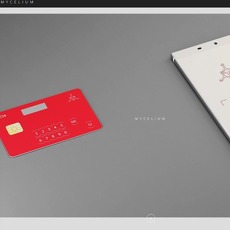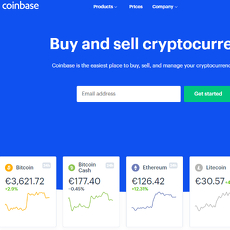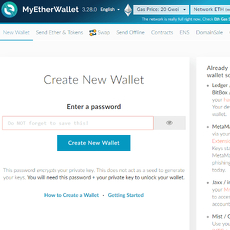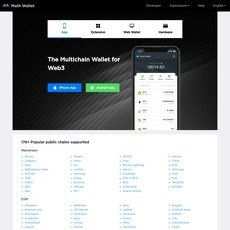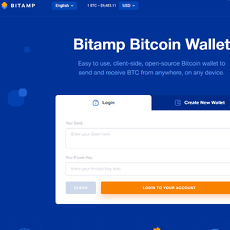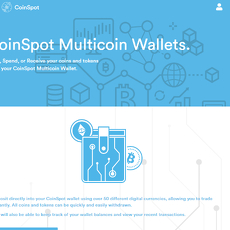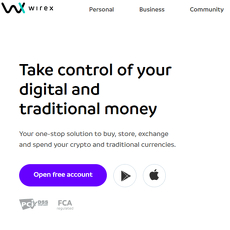Trust Wallet Review
Trust Wallet
trustwallet.com
Trust Wallet Review Guide: Everything You Need to Know (and Questions Everyone’s Asking)
Are you wondering if Trust Wallet really deserves all the hype, or if you’re about to fall for a feature-filled trap? If so, you’re definitely not alone. Picking a safe, reliable crypto wallet feels like needle-in-a-haystack work these days—and it’s no wonder. Every week, another hack story pops up in the crypto news. And while one app promises iron-clad security, another goes viral for being super simple (but, suspiciously, almost too simple!).
So it begs the question: Can you actually trust Trust Wallet—especially with your hard-earned coins? And of course…
- Is it private enough that someone (like the IRS) can’t snoop through your assets?
- Does it really handle both Bitcoin and an avalanche of altcoins smoothly?
- What’s good, what’s bad, and what’s just marketing hype?
Why Picking the Right Crypto Wallet Is So Stressful
If scrolling through endless wallet options gives you a headache, you’re in good company. It’s not just the technical jargon that throws people off. Realistically, most folks just want three things: keep their coins safe, not lose sleep over it, and have something easy to use.
But here’s the kicker: You’ll keep running into horror stories, like:
- Someone’s cousin who lost everything to a phishing app that looked legit
- Wild Reddit threads about fees, features, or funds mysteriously disappearing
- Confusion—are you using something non-custodial, or does the wallet provider hold your keys?
And that’s before you get into nitty-gritty things like supported networks, sending limits, or whether your country can even use the app. It’s like picking the “right” umbrella in a rainstorm, except a leak equals losing real money instead of just getting slightly wet.
What If There Was a Simpler Way?
Here’s what I’m going to do: cut through the noise so you see what matters (and skip what doesn’t). I’ll break down how Trust Wallet works, where it’s genuinely useful, and where it’s just another shiny icon on your phone. Real-life questions—like tax worries, features, privacy, and how much hassle setup really takes—get answered in language anyone can understand. No cryptic whitepapers or buzzword bingo. Real talk, real advice, and real examples.
Who's This Guide For?
If you’re:
- Curious about whether Trust Wallet actually fits your needs,
- Frustrated with confusing wallet options or scared of making a costly mistake,
- Already have Trust Wallet and want the truth on fees, privacy, or cashing out,
- Just want to stash some Ethereum with as little stress as possible—
This guide is for you.
Ready for clear answers and to see why Trust Wallet’s all over “best wallet” lists? Up next, let’s look into what Trust Wallet actually is, who’s behind it, and why so many people swear by it every day…
Quick Intro: What Is Trust Wallet?
Let’s get straight to it—Trust Wallet is a free, non-custodial mobile crypto wallet that lets you store, manage, and swap tons of different coins and tokens, all from your smartphone. It’s designed to be super easy to use, whether you’re new to crypto or already deep in the space. But why are millions of people choosing this particular wallet? What’s behind all the hype?
Short History & Who’s Behind Trust Wallet
Here’s something I get asked a lot: who actually built Trust Wallet, and who owns it now? Originally, Trust Wallet was created in 2017 by a developer named Viktor Radchenko. He wanted a mobile wallet that could support the growing number of Ethereum tokens and actually work well on your phone—something that felt natural, not like clunky desktop software.
The big twist came in 2018, whenBinance (yeah, the global crypto exchange giant) acquired Trust Wallet. This move was massive. Suddenly, Trust Wallet jumped from a respected underdog to a heavyweight, thanks to Binance’s resources and reach. Once Binance stepped in, user numbers exploded, app stability and features improved, and it started appearing on every legit “best wallet” list out there.
"Security depends on people, not just code. It’s the team you’re trusting as much as the tech."
Why So Many People Use It
Let’s talk about popularity with real numbers. As of early 2024, Trust Wallet boasts over 60 million downloads worldwide, according to data from the Google Play and Apple App Store. The reason? It mixes simplicity with serious multi-asset support. You don’t have to worry about whether it’ll support your favorite token. In fact, Trust Wallet has ranked in the top 5 crypto wallets on Cryptolinks’ own wallet lists for several years running, purely on the back of its usability and flexibility.
Some big reasons people keep coming back:
- No registration: No KYC, no account hoops—download, and you’re in.
- Control: You own your private keys. The wallet doesn’t hold your crypto. You do.
- Freedom: Works with Bitcoin, Ethereum, Binance Smart Chain, Polygon, Solana, and way more (I’ll get specific in another section), so you’re not stuck in one ecosystem.
- Direct dApp access: The built-in Web3 browser means you can connect to DeFi, NFT platforms, or games—all from the app.
- No fees for basic use: Trust Wallet itself doesn’t charge you fees (just the usual network fees anyone pays).
Main Features You Should Know
Here’s the good stuff at a glance:
- Supports 70+ blockchains and 250,000+ tokens (yes, really—you’ll almost never run into a coin you can’t store with Trust)
- Clean, friendly interface —not overwhelming, even for crypto beginners
- Buy, swap, and stake right inside the app—no need to constantly move coins around or open a million tabs
- Public and open-source for its core parts, so experts can check the code themselves
- Multilingual and truly global—it’s popular from Nigeria to Brazil, the US to India
- Integrated dApp/Web3 browser, making it dead simple to try new DeFi apps or chase fresh NFT drops
- Backed up by Binance power—but still non-custodial, so you alone hold the keys
When I ask people why they use Trust Wallet, I usually hear, "It just works and never asks for a login or ID." Convenience, plus privacy, keeps users happy.
If you’ve ever found yourself staring at a list of wallets, wondering which one “just works” for regular folks (and not just hardcore coders), you’re starting to see why Trust Wallet is everywhere. But hold on. All wallets aren’t built the same, and Trust Wallet isn’t the only flavor out there. Ever wondered what sets it apart from hardware wallets or browser extensions? Trust me, the answer will surprise you…
Types of Crypto Wallets: Where Does Trust Wallet Fit?
If you’ve ever tried searching for “crypto wallet” online, you already know the choices are endless. It’s like walking into an ice cream shop and realizing there are 150 flavors. So, before you pick Trust Wallet (or anything else), you need to get the lay of the land. Not every wallet is made for every type of crypto fan—or every risk appetite. Here’s what that actually means for you.
A Quick Overview of Crypto Wallet Types
The crypto world is flooded with wallet types, but they generally break down into a few big buckets:
- Hardware Wallets:
Physical devices that are offline most of the time—think Ledger or Trezor. They’re the vaults of crypto storage: super secure, but not what you want if you need to pay for a coffee with crypto on a whim. - Software Wallets:
These run on your computer or phone. They can be further split into desktop, mobile, or even browser extensions. Trust Wallet? It fits right here (mobile category). These are gold for on-the-go access. - Online/Web Wallets:
Wallets you access through a browser. Fast and easy, but if the website gets hacked, so can your wallet. Think exchanges like Coinbase. - Paper Wallets:
Old school! Print your private and public keys on paper. It’s unhackable… until your dog eats it or you spill your morning coffee.
Each wallet type sits somewhere between “ultra-secure but slow” and “convenient but risky.” The trick is knowing which flavor actually fits your lifestyle.
What Makes Trust Wallet a Software Wallet
Trust Wallet gets labeled as a mobile software wallet because it’s a smartphone app, not a physical gadget or a bit of paper you tuck in your drawer. It’s the digital equivalent of having your bank in your pocket—your crypto is just a tap away.
- Accessibility: You can check your balance, send or swap tokens, and browse dApps from anywhere with your phone.
- Non-custodial: Unlike exchange wallets, Trust Wallet never holds your keys—they’re stored (encrypted) on your device. The keys are yours, and only yours.
- Speed: Transactions happen instantly, which is perfect for catching market dips or buying NFTs during a lunch break.
All this makes Trust Wallet a solid pick for people who want freedom and flexibility with their crypto but don’t want to lug around a USB stick or remember where they hid their seed phrase-laden sticky note.
Pros & Cons Compared to Other Wallet Types
There’s no holy grail in crypto wallets; it’s all give and take. Here’s where Trust Wallet shines, and where it might make you pause:
- Why Trust Wallet wins:
- It’s always with you: Your crypto’s in your pocket, not locked in a drawer at home.
- Easy to use: The app’s design makes crypto less intimidating—which is rare in this space.
- Wide asset support: A recent study by Cointelegraph ranks Trust Wallet among the top for supporting multiple blockchains and tokens.
- Built-in dApp access: You don’t have to leave the app to connect with DeFi, play games, or snag the latest NFT drops.
- Where it loses out:
- Not cold storage: If your phone gets malware, there’s a risk (unlike hardware wallets that stay offline).
- No customer support hotline: Lose your device and seed phrase? Recovery is impossible—no one is coming to the rescue.
- Potential for human error: Accidentally send crypto to the wrong address? The blockchain is unforgiving.
“Security is a process, not a product.” – Bruce Schneier
This quote nails it: no wallet will protect you if you don’t take some responsibility yourself. Using a mobile wallet like Trust Wallet balances freedom with risk. It’s great for everyday use, just maybe not for parking your life savings forever.
Feeling torn? You’re not wrong—picking a wallet is personal, and the “right” answer truly depends on your habits, risk tolerance, and how often you actually touch your crypto.
Still wondering what the Trust Wallet setup looks like, or whether you can really get started without making some “rookie mistake”? Stick around—we’re about to walk through setting up, securing, and actually using Trust Wallet, step by step. Just wait until you see how easy (or sneaky-tricky) it can be…
How to Set Up and Use Trust Wallet (Step-by-Step)
Ready to start using Trust Wallet without second-guessing every single tap? Good news: setting it up is way easier than most people expect. Just keep your wits about you and follow the process—think of it like locking the door before you leave your house, except you’re locking up your crypto instead.
Downloading and Installing
This step sounds simple, but there are so many horror stories about people grabbing fake apps and losing everything. Let’s avoid that.
- Only grab Trust Wallet from the official Trust Wallet website, Apple App Store, or Google Play. Ignore sketchy links you see anywhere else—including in comments or DMs.
- Check the publisher. It should say “TrustWallet” and look legit—no weird typos or spelling mistakes.
- Install just like you would any other app. Android or iOS, it doesn’t matter—they work the same.
“The most secure wallet is the one you actually set up right, not the one you wish you’d protected after the fact.”
This point can’t be stressed enough. According to recent security studies, phishing and fake apps are a top reason crypto gets stolen. Take two seconds to double-check—you’ll be glad you did.
Creating Your Wallet & Securing Your Seed Phrase
The app will offer two options: create a new wallet or import an existing one. For beginners, hit “Create New Wallet.” Here’s what comes next:
- Seed phrase time. You’ll be shown 12 words. This sequence is your master key, giving access to all your funds. Lose the words, and your coins are gone. Someone else gets them? Say goodbye.
- Write them down on paper—do not copy-paste into Notes or take a screenshot. Really. Paper or a steel backup only. Hide it somewhere ultra safe (not in your photo gallery, not on the cloud).
- Confirm the words by choosing them in the right order. This step is annoying, but it’s exactly the speedbump that keeps scammers out.
Quick tip: I know someone who temporarily tattooed their phrase on their arm until they got home—don’t do that, but you get how priceless this is!
Lose your phone? As long as you’ve got that seed phrase, you can install Trust Wallet on a new device and recover your funds. If you forget it, there’s no magical “forgot password” button. No central support to help, either. It’s up to you.
Sending, Receiving, and Swapping Crypto
Once you’re set up, the real fun begins. The home screen is clean—no messy clutter, just a list of assets and big, obvious buttons.
- Receiving: Tap the asset you want, then tap “Receive.” You’ll see your wallet address and a QR code—copy that or share the QR with whoever’s sending you crypto.
- Sending: Hit “Send,” paste your friend’s (or exchange’s) address, set the amount, and double-check everything. Triple-check for typos—no refunds on the blockchain.
- Swapping: Trust Wallet’s built-in swap feature is slick. Pick your tokens, preview rates, and swap in-app. No hopping to another exchange just to convert ETH to BNB or whatever else you need.
Helpful sample? The last time I needed to pay a friend for pizza with crypto (yes, really—it’s 2024), the process took under 30 seconds, and the funds were there before the cheese cooled down. It’s that quick.
Heads up: Each transaction comes with a network fee (not from Trust Wallet, but from the blockchain you’re using). Want to know just how safe your coins really are while doing all this? Well, that’s what’s coming up next—and I have a story or two you’ll want to hear before you make your next move. Ready?
Is Trust Wallet Safe? Looking at Security
If you’ve ever lost sleep wondering if your crypto wallet is actually secure, you’re not alone. Your digital wallet is basically your bank, your vault, and your safe all rolled into one. Trust Wallet knows this — and goes out of its way to keep your coins tucked away from prying eyes and sneaky hands… but no wallet’s perfect, and some risks are real. Let’s break down what Trust Wallet does right, and where you still need to be on your game.
Built-In Security Features
Trust Wallet brings some solid guards to the table — right out of the box:
- Touch/Face ID: Set this up, and your app will need your fingerprint or face scan before it’ll open or send crypto. It’s quick, painless, and helps stop anyone who grabs your phone from getting straight in.
- Seed Phrase Protection: When you make a new wallet, you’re shown a 12-word seed phrase. This is everything — lose it, and there’s no “forgot password” button. It never leaves your device and never goes to Trust Wallet’s servers, so nobody (not even them) can see it.
- Open-Source Code: What’s cool here? Anyone can check the code and look for sneaky stuff, backdoors, or vulnerabilities. Security researchers (and some passionate amateurs!) regularly check this over. That’s a big win for transparency and trust. In fact, open-source projects are known for having faster bug response times, according to studies by Synopsys and GitHub.
Another bonus? No personal details needed to use Trust Wallet — your info stays yours, not floating around on some marketing database.
“There are only two types of companies: those that have been hacked, and those that will be.” – Robert Mueller, former FBI Director.
Crypto is no different. The strongest vaults are backed up by the smartest users.
Where It Can Go Wrong ...?
Is Trust Wallet Safe? Looking at Security
You know that “what if I lose everything?” feeling? If you’re into crypto, you’ve probably felt it at least once. Security isn’t just some technical mumbo-jumbo—it’s your peace of mind. So, here’s my honest look at how Trust Wallet keeps your crypto safe… and what could still trip you up if you’re not careful.
Built-In Security Features
- Touch/Face ID: You can lock the app with your fingerprint or face, making it basically impossible for nosy friends, family, or random phone thieves to get in.
- Seed Phrase Protection: During setup, you get a 12-word recovery phrase. That phrase is everything—never share it, never screenshot it, never forget where you hid it offline. Trust Wallet never stores it on their servers, so no one but you holds the keys.
- Open-Source Code: Techies love this for a reason. Anyone can check the code for backdoors or bugs. A Cornell University study even showed open-source wallets get vulnerabilities patched more quickly than closed wallets. This community transparency is serious peace of mind.
Also worth saying: Trust Wallet doesn’t grab your personal data. You don’t need to enter an email, phone number, or any ID just to use the wallet. That’s a win for privacy right from the start.
“There are only two types of crypto users: those who have been phished, and those who will be.”
Staying safe is about what you do—tools help, but habits matter more.
Where It Can Go Wrong
Let’s get real—no wallet is totally foolproof. Here’s where most people (and even pros) mess up:
- Losing Your Phone: Lose your device and forget your seed phrase? Your crypto is basically lost forever. No tech support miracle will resurrect it.
- Phishing Attacks: Fake emails, dodgy links, and scammy DApps can trick you into handing over your seed. There are countless stories on Reddit of users losing thousands by entering their phrase into a site that looked like Trust Wallet, but wasn’t.
- Fake Apps: Downloaded Trust Wallet from anywhere except the official site or your app store? You might get a lookalike app with hidden malware ready to steal everything.
- Human Error: The strongest wallets in the world can’t stop a finger slip or bad backup. Leaving your seed phrase on Google Drive or in your email? You’re rolling the dice.
Remember: even with all Trust Wallet’s protections, you are the last line of defense. As the crypto saying goes, “Not your keys, not your coins,” but also: “Not your backup, not your savings.”
How Trust Wallet Stacks Up Against Competitors
So, does Trust Wallet really measure up when it comes to keeping your crypto safe compared to heavyweights like MetaMask or hardware wallets such as Ledger?
- MetaMask: Also offers seed phrase security and a browser extension, but is often targeted by phishing campaigns. On mobile, both are close, but Trust Wallet doesn’t have browser plugin risks.
- Ledger & Hardware Wallets: Rule the throne for long-term storage—since your keys never leave the physical device. You plug them in when you need them, otherwise, they’re offline and untouchable. Trust Wallet is way easier for daily use and DApps, but if you’re hoarding serious Bitcoin or Ethereum, nothing beats a hardware wallet for “sleep at night” security.
- Other Software Wallets: Some try to store extra info “in the cloud” for fast resets—not always great for privacy or safety.
A 2023 survey by Consensys showed that over 47% of crypto users worry most about hacks and phishing—not software flaws. That really says it all: the tech is good, but humans are the wild card.
If you’re eyeing more obscure coins or tokens, or thinking, “Sure, Trust Wallet is safe, but does it work with my favorite crypto?”—the next section's right up your alley. Ready to see which blockchains it supports (and what it can’t handle yet)? Let’s get into the good stuff next.
What Coins and Tokens Does Trust Wallet Support?
Let’s be real: Nothing kills the crypto vibe faster than learning your chosen wallet doesn’t actually support that altcoin you’re hyped about. Or worse, chasing down some moonshot token and realizing you’re out of luck storing it. So the big question—does Trust Wallet have your back when it comes to asset support?
Major Blockchains and Thousands of Tokens
Trust Wallet isn’t playing around when it comes to supported blockchains. If you’re into variety, you’re in good company. Right off the bat, it covers the essentials:
- Ethereum (ETH) & All ERC-20 tokens – Yes, including DeFi favorites and your meme coin treasures.
- Bitcoin (BTC) – The OG is here, safe and sound.
- Binance Smart Chain (BSC) & BEP-20 tokens – Not surprising, given Binance owns Trust Wallet, but still worth celebrating.
- Solana (SOL) – Great for NFT hunters and cheap, fast transfers.
- Polygon (MATIC) – For low-fee transactions and a growing DeFi scene.
- Tron (TRX) & TRC-20s – Great for speedsters who hate waiting.
- Litecoin, Dogecoin, Cardano, Polkadot, Avalanche, Cosmos… the list goes on.
Seriously, Trust Wallet can handle thousands of tokens across 70+ blockchains. If you’re someone who likes to explore new projects, you’re rarely going to hear “not supported” here.
Adding Custom Tokens
But what if you find a rare gem with a ticker no one else seems to know? Trust Wallet lets you add any custom token as long as you have the contract address. It’s a game-changer for people who are hunting for those early-stage projects or part of private sales.
- Find the contract address from the project’s official channels. (And—please—triple-check it to avoid fakes!)
- Go into the app, hit “Add Custom Token,” drop in the address, and Trust Wallet does the rest.
- Support for both Ethereum and BSC custom tokens means you miss almost nothing.
If you’ve ever bought some “weird” token no major wallet recognizes, you know the feeling: “Will this show up?” Trust Wallet’s flexible, so the answer is practically always yes.
Where It Falls Short
Let’s not sugarcoat it—nothing’s perfect. Even with all that support, every wallet has blind spots. Here’s where Trust Wallet can trip you up:
- Bitcoin NFTs (Ordinals) aren’t natively supported yet. That’s a miss for collectors who want everything in one place.
- Some super-niche coins—like certain obscure testnets or proprietary blockchains—won’t be available off the shelf. You can usually add ERC/BEP-20 versions, but if it’s not a major chain or token standard, you might be disappointed.
- Advanced features for chains like Cardano or Algorand might feel limited compared to wallets dedicated to just those coins.
“Diversity may be the hardest thing for a society to live with, and perhaps the most dangerous thing for a society to be without.” – William Sloane Coffin
Translation? Having all these choices is empowering, but when you absolutely need support for the rarest coin, you’ll want to double-check before making Trust Wallet your only crypto home.
Ever wondered about the real-world experience holding these coins, trading them, or withdrawing to cash? Stick around—next, I’m clearing up the big mysteries about fees, buying, and how private your activity really is. Seriously, can the IRS see your Trust Wallet? Let’s finally answer the questions everyone whispers about, coming up next.
Real-World Use: Fees, Buying Crypto, Cashing Out, and Privacy (Your Questions Answered)
Alright, let’s get to the heart of what everyone really wants to know. Is using Trust Wallet “free”? Can my transactions be tracked? And how, exactly, can I turn those shiny coins in my wallet into real cash? This is where things get interesting, sometimes a little messy, and always very real. Grab your coffee – we’re getting into the stuff nobody tells you until it’s too late.
How Much Is $1 on Trust Wallet? (Exchange Rates and Token Value)
Trust Wallet lets you see exactly what your coins and tokens are worth, right inside the app. But remember, the value you see isn’t always the value you’ll get if you sell instantly. The crypto market moves fast — sometimes in your favor, sometimes… not so much.
- Checking values: Just open your Trust Wallet and you’ll see your balance for each coin, live. For deep diving, I always use CoinGecko (pro tip: they’re super quick to update prices from all major exchanges).
- TWT Token: If you’re wondering about Trust Wallet Token (TWT), its price swings just like any other crypto. $1 in TWT today might be $0.90 or $1.10 tomorrow—that’s the market for you.
- Exchange rates: When you swap tokens in-app, you’ll notice fees are usually baked in via the provider, and rates can differ from what you see elsewhere for the same coin. Always double-check before confirming a swap.
"Don’t focus on the price you paid — focus on the price you’re selling at. That’s where your emotions, and your wallet, meet reality."
Can the IRS or Other Authorities See Your Trust Wallet?
This is probably one of the biggest worries out there, and for good reason. The simple answer: Trust Wallet doesn’t ask for your name or email. But – and it’s a big but – anything you do on a blockchain is public.
- No traditional “account:” You’re just a wallet address, not a username. The app itself doesn’t know who you are.
- Blockchain transparency: Every transaction is right there for the world to see, forever. Anyone (including the IRS if they have your wallet address) can follow the money — and if you cash out to a bank or exchange (especially if it’s a KYC exchange like Binance or Coinbase), your identity becomes linkable.
- Government crackdown: For folks in the U.S. and many other countries, crypto regulators are ramping up. Just because no one’s knocking today doesn’t mean nobody sees.
If you read between the lines, privacy is pretty good until you connect your Trust Wallet to your identity —then it’s game over for anonymity.
Can You Get Real Money from a Trust Wallet?
Short answer: Yes. But not directly. There isn’t a magical “withdraw to bank” button in Trust Wallet (yet). Here’s how real users turn their crypto into cash:
- Transfer to an exchange: Send your coins (say, ETH or BTC) to an exchange that lets you cash out to fiat – think Binance, Coinbase, or a local exchange you trust.
- Sell and withdraw: Once your crypto’s on the exchange, sell it for dollars, euros, whatever – and then withdraw it to your bank account. Expect some fees along the way (the exchange and your bank might both charge something).
- P2P & other ways: Some folks use peer-to-peer (P2P) deals directly from their wallet, but that’s another rabbit hole and definitely requires people you trust. Scams are real. If you’re going this route, you’ve got to be 100% sharp.
So yes, Trust Wallet is your storage and sending tool, but the cash out part always happens elsewhere.
Other Common Questions (Quick FAQ)
- Backup – What if I lose my phone? Your 12-word seed phrase is your lifeline. No phrase = no coins, ever. Keep it safe, never online.
- Are there fees? Trust Wallet itself doesn’t charge – but the network does. Each blockchain has fees (sometimes tiny, sometimes painful, depending on congestion).
- Can I stake my coins? You can stake some assets directly in the wallet, mainly for coins like BNB, ATOM, or TRON. Rates change over time.
- Which networks can I use? Ethereum, BNB Chain, Bitcoin, Solana, Polygon, and dozens more. For the wild stuff, adding custom tokens works too.
- What about NFT support? Yes, Trust Wallet lets you send, receive, and view NFTs on Ethereum and BNB Chain.
Ever noticed how the biggest crypto questions come down to “Is it really safe?” and “Will I get all my money out when I need it?” Here’s where things get spicy: in the next section, I’ll lay out the real pros and cons you won’t find on the official site — the good, the bad, and some hard truths nobody shares. Still on the fence? Wait until you see what matters most before you take the leap…
What Are the Pros and Cons of Trust Wallet?
Alright, this is where I get to spill the beans about what’s really great with Trust Wallet…and what’s occasionally a pain in the neck. No wallet is perfect. But Trust Wallet has developed a bit of a cult following and there are a LOT of reasons why. At the same time, there are also some things you probably wish someone warned you about before you dived in.
Biggest Advantages
Let’s start with the stuff that makes Trust Wallet a total favorite for millions:
- Super User-Friendly: The setup is fast; the interface is clean and feels made for normal people, not just crypto nerds.
- Huge Asset Support: We’re talking thousands of tokens across top blockchains like Ethereum, BNB Chain, Solana, and even Bitcoin. I love not having to juggle different wallets just to hold my favorite coins.
- Totally Free: Unlike hardware wallets or paid subscription apps, Trust Wallet is 100% free to download and use. The only thing you’re paying are blockchain network fees, nothing to Trust Wallet itself.
- Non-Custodial (You Control Your Crypto): Your keys never leave your device. There’s no central Trust Wallet database to get hacked. Peace of mind!
- In-App Staking: Want to earn passive rewards? You can stake assets like BNB and Cosmos right inside the app—no technical hoops to jump through.
- Built-In Browser for dApps: Connect to DeFi projects, NFT markets, and even crypto games directly (handy if you’ve got an itch for new farming opportunities).
- Open Source: Developers can check the code, which means fewer secrets and more trust.
I’ve also noticed (and you probably have, too) that Trust Wallet keeps rolling out updates, squashing bugs, and adding new features. That ongoing development is a big reason it’s stuck around at the top. As crypto grows, wallets that just “sit there” tend to get left in the dust. Not the case here.
Potential Drawbacks
No point sugarcoating it—there are a few places where Trust Wallet could be better:
- Customer Support Woes: Lost your seed phrase? App crashed? You’re mostly on your own. Unlike some centralized exchanges, you can’t call up Trust Wallet and expect a magic fix.
- No Native Desktop App: If you’re the type who prefers managing crypto on your laptop in a cozy chair, you’ll have to stick to mobile, or use workarounds like emulators (which isn’t great for security).
- Limited Advanced Tools: Want advanced multi-sig, deep custom permissions, or complex DeFi integrations? You’ll hit some walls versus super technical wallets (think Gnosis Safe for teamwork, or cold wallets for absolute security).
- Phishing Dangers: The popularity means scammers love cloning Trust Wallet apps and websites. It’s on you to check you’re downloading the real thing. Always from official app stores—double check that publisher!
- Seed Phrase = Single Point of Failure: This goes for any non-custodial wallet, but if you lose your 12-word backup, the crypto is gone forever. No password reset, no friendly “forgot PIN?” link. Serious responsibility.
Just so you know, some of these are the trade-offs for any user-controlled wallet. You get more privacy and independence, but with it comes the need to be your own bank. If that sounds exciting, awesome. If that's terrifying—that's good to know, too.
Who Should (and Shouldn’t) Use Trust Wallet?
Let’s get brutally honest about who’s a good fit—and who’s not:
Trust Wallet is ideal for...
- Crypto Beginners & Everyday Users: If you want a simple way to send, receive, and store crypto on your phone without a huge learning curve, it’s made for you.
- DeFi Fans: People loving NFT trading, experimenting in DeFi dApps, or moving between blockchains via mobile. The built-in browser rocks!
- Anyone Who Values Control: If the idea of holding your own keys (not your keys, not your coins) excites you, this is your jam.
But you should look elsewhere if...
- You Need Ultra-Deep Security for Huge Sums: For real-life life-changing amounts of money, nothing beats a hardware wallet kept offline (examples: Ledger, Trezor).
- Complex Business/Team Use: Need multisig, company controls, or deep permissioning? Look at advanced wallets designed for organizations.
- You’re Super Forgetful With Backups: If you constantly lose things and backups aren’t your strong suit, consider custodial solutions or reliable multi-layer hardware storage.
My verdict? Trust Wallet is like that all-in-one multitool you throw in your pocket—it does almost everything you need, right when you want it. But would I use it as my only solution for millions in crypto? Not a chance. For most people, it’s a reliable day-to-day wallet, especially if you embrace regular backups and basic security hygiene.
Still debating if this is the one for you? Wondering how we actually go about testing wallets beyond just kicking the tires? Stick around—I’ll pull back the curtain on my review process next, and share the checklist that separates the wallets I’d trust with my own coins from the hype. And yep, I’ll answer the big question once and for all in the grand finale. You don’t want to miss that!
How We Evaluate Wallets + Final Thoughts: Should You Trust Trust Wallet?
Quick Recap: Our Review Process
People always ask, “How do you actually judge a wallet at Cryptolinks?” It’s not some quick look at glossy screenshots or a copy-paste of other people’s opinions. I take every wallet, including Trust Wallet, for a real test drive. Here’s how I size things up:
- Usability: I set up the wallet from scratch on a fresh device, just like you would. Easy onboarding gets major points. If it’s confusing, that’s a red flag.
- Security: I check what’s under the hood—does the app force a seed backup? Does it offer biometric locks? I’ll do a little research on past exploits or major user mishaps, too. According to CipherTrace studies, most wallet breaches happen from phishing or human error, not app-side hacks—so clear warnings in the app really matter.
- Real-World Transactions: I send, receive, and swap tokens with a tiny amount ($10 or less—no need to risk more than coffee money). Fees, wait times, and hiccups get tracked, every time.
- Asset Support: I’ll add a handful of popular coins and a couple of random tokens (sometimes weird, tiny ones). If I run into bugs or missing icons, that’s always a minus.
- Help & Documentation: I try reaching out to see how responsive support is, and whether the FAQs actually answer real questions or just gloss over them.
Only after all that do I sit down to write. That’s why you can be sure this verdict is the real deal—not recycled marketing fluff.
Resources and Where to Go Next
If you’ve made it this far, you probably want more than just one wallet’s story. Here’s where you’ll want to bookmark:
- Full roundup of other top wallets? Our wallet comparison page is built for quick decisions (simple pros/cons, real user feedback, instant links).
- Want a step-by-step setup or troubleshooting help? Trust Wallet’s official help center is worth a look if you get stuck. Always use their real domain—search engines sometimes show fake clones!
- Back to basics? Check my other plain-English wallet explainers and guides—solid if you’re still working out the basics or want tips on avoiding rookie mistakes.
Use these links as your starting point, not your final destination—crypto moves fast, and wallets keep rolling out new stuff.
Final Call: Is Trust Wallet Worth Your Trust?
So, should you actually use Trust Wallet? Here’s what I honestly think, after living with it:
- Yes, if you want something hassle-free and mobile-first. Setup is painless, and it’s hard to beat for swapping, staking, and holding major coins from your phone. That’s why it snags so many downloads on Google Play and the App Store.
- It’s solid on security—as long as you are, too. The app keeps your keys in your hands (not theirs), but YOU have to protect that seed phrase. There’s no “I forgot my password” option. If you lose your backup, it’s game over for your coins. That’s just how crypto works.
- Great for most people, not the perfect pick for everyone. Heavy traders, folks moving six figures, or anyone who’s super nervous about mobile risks might want to upgrade to a hardware wallet (I like Ledger and Trezor for this—see my reviews for full pros/cons). Casual investors and beginners? Trust Wallet strikes the right balance.
- Customer support is still its weak spot. There’s a big community, but when you really need a human, don’t expect 24/7 handholding. That’s something still missing from most free wallets.
One last nugget: No wallet, no matter how popular, will protect you from yourself. Triple-check before sending funds, bookmark the official website, and treat your seed phrase like it’s a million-dollar lottery ticket. Seriously.
Wrapping up, Trust Wallet is a smart, simple choice for most crypto holders. It nails the basics, supports a mountain of coins, and won’t cost you a dime. Just keep your guard up, use common sense, and remember—crypto rewards people who stay alert.
Want more reviews or tools to keep your crypto safe? Pop over to the main Cryptolinks news section whenever you’re ready. Until next time, stay sharp and guard those keys!


